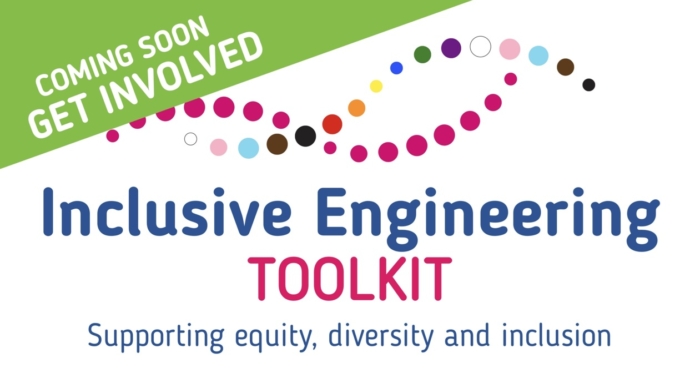 Thanks to all those who took the time to let us have their thoughts on the proposals for the Teaching Excellence Framework – and particularly to those who took part in our workshops and to our colleagues the The Council of Heads and Professors of Computing.
Thanks to all those who took the time to let us have their thoughts on the proposals for the Teaching Excellence Framework – and particularly to those who took part in our workshops and to our colleagues the The Council of Heads and Professors of Computing.
In fact, what you proposed was a Learning Excellence Framework focusing on the programme content and learning infrastructure needed to enable students to get the best from their time in higher education.
Engineering Professors’ Council Position Statement on the Teaching Excellence Framework
We underline our long-standing commitment to the principles of delivering a high quality educational experience and good outcomes for students which reflect:
- the diversity of the sector;
- encouragement of social mobility;
- regional and national need.
University is not school. We aim to develop independent learners and equip them with the tools they need to have productive and fulfilling careers. In doing so, we need to reflect the educational context more broadly: teaching is but one element of this and students themselves need to be recognised as essential stakeholders in the process. We therefore propose a ‘Learning Excellence Framework (LEF)’ which encompasses:
- providing an appropriately resourced learning environment;
- providing appropriate support to students which recognises and responds to educational background, diversity and disability;
- providing dynamic and up-to-date curricula and helping students to demonstrate how their learning meets the needs of employers and wider society– whether in industry, the public and not-for-profit sectors or in academia and whether it be in the UK or elsewhere in the world.
In addition, universities are diverse and dynamic institutions operating in competitive environments. The portfolio of disciplines in any institution will be developing at different rates, thus, the effectiveness with which the above can be delivered can only be meaningful at the disciplinary level.
It is essential that the cost of implementing and operating the framework does not exceed any gain (financial or otherwise) for the sector. We therefore propose that a variety of current evaluation and assurance methods are adjusted and combined to avoid duplication and provide consistency and coherence. The outcome could be presented as a “performance dashboard” against each of the above themes which could be scored at three levels – gold, silver, bronze (or unclassified), as for Athena SWAN. In this way, we can avoid an average single score for the LEF and stakeholders can be provided with a more nuanced view of the environment in which their learning is taking place. It also has the advantage of providing more practical information on which universities can act to improve the environment for learners.
Providing an appropriately resourced learning environment
The quality assurance and/or accreditation frameworks should encompass checking:
- that the university has a range of appropriate promotion pathways for its academic staff in place, at least one of which encompasses educational achievement;
- that the resource allocation model in place at departmental (discipline) level provides appropriate and sustainable financial resources to support both the physical environment/equipment needs and operational needs, including appropriate staffing (both lecturers, support staff and technicians);
- that there is fair and transparent workload allocation in place that supports the development of early career staff and that there is recognition of the necessity to respond appropriately to student feedback;
- there is strong, structured leadership for learning and teaching excellence and continuous improvement is demonstrated at department and institution level.
Indicators of the level at which the department has met the criteria (gold, silver bronze) could be developed.
Providing appropriate support to students which recognises and responds to educational background, diversity and disability
The quality assurance and/or accreditation frameworks should encompass checking:
- progress of the department towards acquisition of Athena SWAN accreditation (criteria for gold, silver and bronze already in place);
- the nature of the institution’s Office for Fair Access (OFFA) agreements and the wider financial and pastoral support provided for students.
It is worth noting that in Scotland, this is measured and monitored via Outcome Agreements between the HEI and the funding council.
Providing dynamic and up to date curricula and helping students to articulate how their learning meets the needs of employers
The disciplines we represent have long-standing and close relationships with a range of professional bodies and with employers. The engineering disciplines have worked closely with the Quality Assurance Agency (QAA) over many years in developing the relevant subject benchmark statements and UK-SPEC which seeks to articulate clearly the outcome of students’ learning. Where appropriate, assessment/accreditation visits should examine how these are used in programme development and how this is communicated to students. Visits could also review:
- the proportion of academic staff with relevant professional qualifications or demonstrable continuing professional development;
- the department’s encouragement and support for students to join professional bodies at student level and ensuring the programme prepares students for entry to the body at professional level;
- whether the department can demonstrate meaningful interaction with employers, including Industrial Advisory Boards, visiting lectureships, contextual learning opportunities, encouragement of staff to gain professional qualifications/accreditation, where appropriate;
- whether students are encouraged to gain skills in the international context e.g. review the proportion of students taking Study Abroad years;
- whether students are encouraged to take up learning opportunities outside their home universities, e.g. Study Abroad or contextual learning opportunities which attract academic credit or other recognition for example, on their Higher Education Achievement Report, where appropriate.
You can read the full submission to the Green Paper here – and a range of other organisations’ submissions here.




